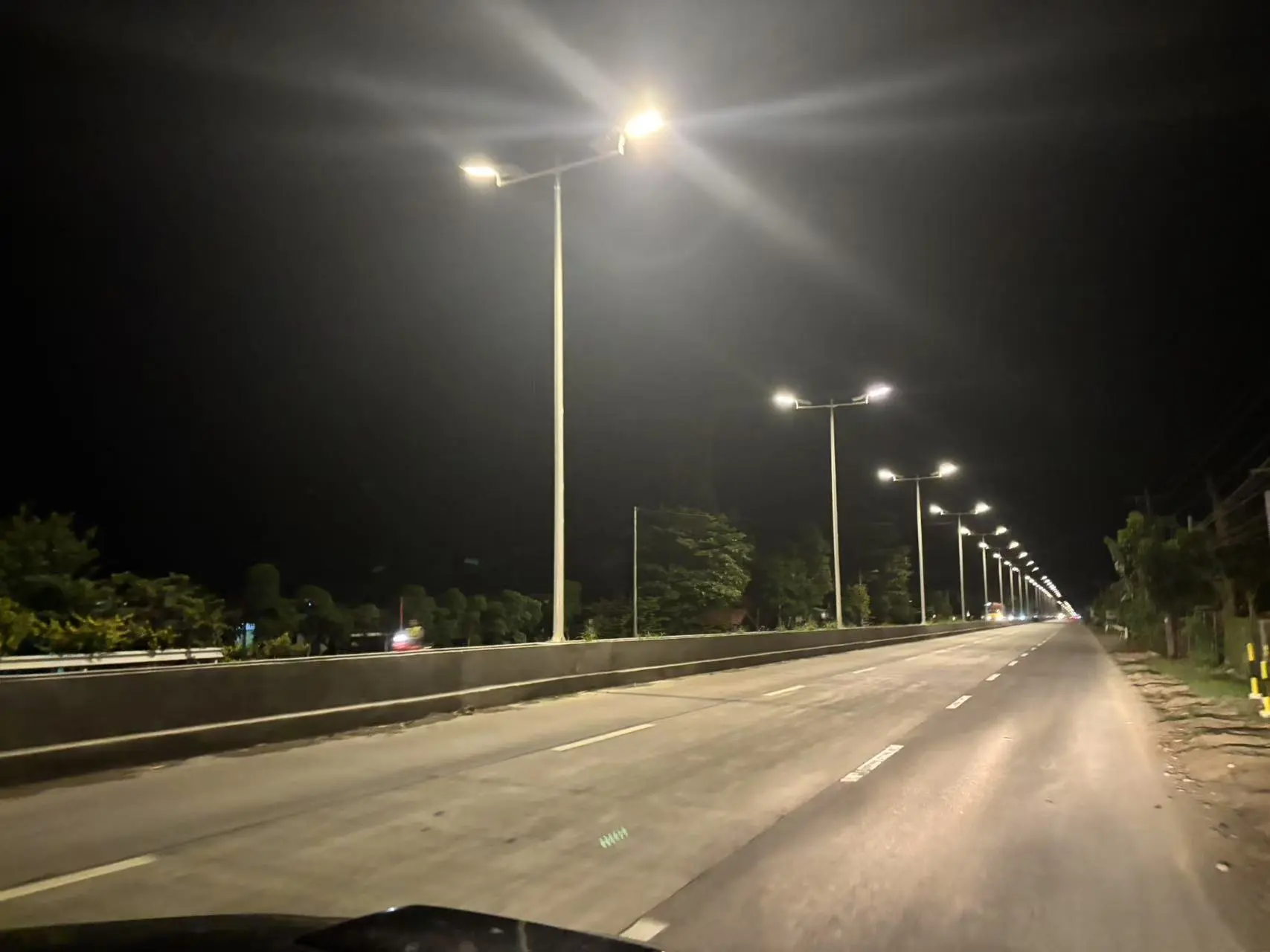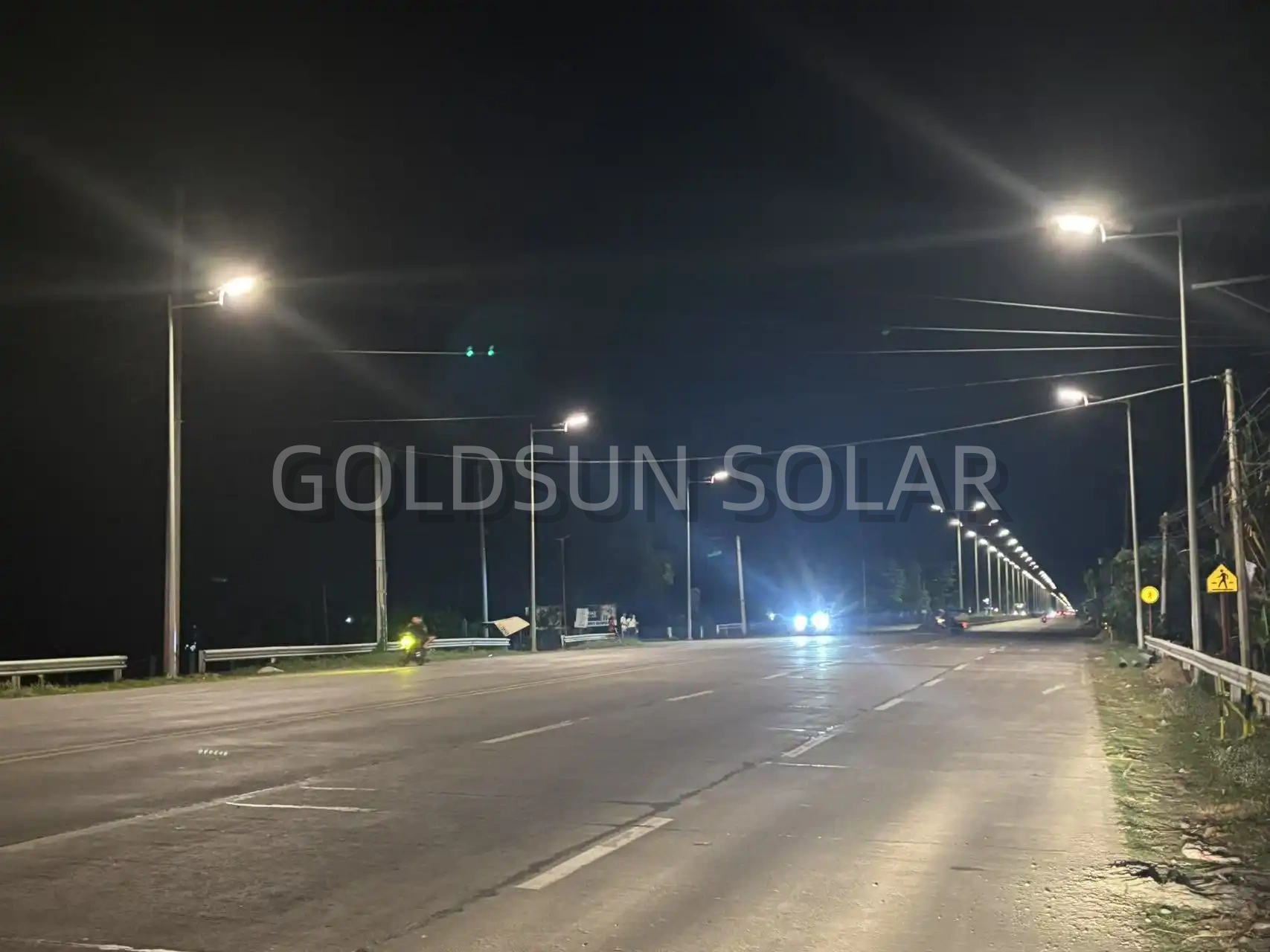Top Solar Street Lighting Investment Opportunities in Africa
Africa's rapidly growing energy needs and increasing focus on sustainable development have created a fertile ground for solar street lighting investments. As the continent strives to improve infrastructure and reduce its carbon footprint, solar-powered street lights emerge as a cost-effective and environmentally friendly solution. This blog explores the top solar street lighting investment opportunities in Africa(Solar Street Lights Africa), highlighting the potential for growth, the benefits of such investments, and the key markets to consider.

What are the main advantages of investing in solar street lights in Africa?
Cost-effectiveness and energy savings
Investing in solar street lights in Africa offers significant cost-effectiveness and energy savings. Traditional street lighting systems often rely on expensive grid connections and consume large amounts of electricity, burdening already strained power infrastructures. Solar street lights, on the other hand, operate independently of the grid, harnessing abundant sunlight to power LED luminaires. This autonomy eliminates the need for extensive wiring and reduces electricity costs. In many African countries, where power outages are common, solar street lights provide a reliable lighting solution that continues to function during blackouts. The long-term cost savings are substantial, as solar panels have a lifespan of 25-30 years, and LED lights can last up to 50,000 hours. Maintenance costs are also lower compared to traditional lighting systems, further enhancing the economic benefits of solar street lights in Africa.
Environmental sustainability and reduced carbon emissions
Solar street lights in Africa contribute significantly to environmental sustainability and reduced carbon emissions. As the continent faces increasing pressure to address climate change, transitioning to renewable energy sources becomes crucial. Solar-powered street lighting eliminates the need for fossil fuel-based electricity generation, reducing greenhouse gas emissions and air pollution. This shift aligns with many African countries' commitments to international climate agreements and their national sustainable development goals. Additionally, solar street lights help preserve local ecosystems by reducing light pollution, as they can be designed with motion sensors and dimming capabilities to minimize unnecessary illumination. The environmental benefits extend beyond emissions reduction, as solar street lights reduce the need for resource-intensive infrastructure development associated with traditional lighting systems. By investing in solar street lights, African nations can demonstrate their commitment to sustainable urban development and position themselves as leaders in green technology adoption.
Improved safety and social benefits
Investing in solar street lights in Africa brings about significant improvements in safety and social benefits for communities. Well-lit streets and public spaces contribute to reduced crime rates and enhanced pedestrian safety, particularly for women and children. In many African urban and rural areas, inadequate lighting has been a major obstacle to nighttime economic activities and social interactions. Solar street lights can transform these spaces, extending business hours for local entrepreneurs and creating safer environments for community gatherings. The increased illumination also improves road safety, reducing accidents and making transportation more efficient. Furthermore, solar street lights can be equipped with additional features such as emergency call buttons or Wi-Fi hotspots, further enhancing their social value. By investing in solar street lighting, African countries can foster more inclusive and vibrant communities, promoting economic growth and social cohesion.
Which African countries offer the best opportunities for solar street light investments?
Nigeria: A burgeoning market for solar solutions
Nigeria presents a burgeoning market for solar street light investments in Africa. As the most populous country on the continent with over 200 million inhabitants, Nigeria faces significant energy challenges, including frequent power outages and limited grid connectivity. This creates a substantial demand for alternative lighting solutions, particularly in urban and peri-urban areas. The Nigerian government has shown commitment to renewable energy adoption through various policies and initiatives, such as the Nigeria Electrification Project (NEP), which aims to increase access to electricity through off-grid solutions. Solar street lights align perfectly with these objectives, offering a reliable and sustainable lighting option. Moreover, Nigeria's rapidly growing cities and expanding road networks create numerous opportunities for solar street light installations. The country's strong entrepreneurial spirit and growing tech ecosystem also provide a favorable environment for innovative solar lighting projects, potentially incorporating smart city technologies.
Kenya: Leader in renewable energy adoption
Kenya stands out as a leader in renewable energy adoption in Africa(Solar Street Lights Africa), making it an attractive destination for solar street light investments. The country has made significant strides in solar energy deployment, with numerous successful projects already implemented. Kenya's government has set ambitious targets for renewable energy integration, aiming to achieve 100% green energy by 2030. This commitment creates a supportive policy environment for solar street light investments. The country's well-developed mobile money ecosystem, exemplified by M-Pesa, facilitates innovative financing models for solar projects, including pay-as-you-go systems that can be applied to street lighting. Kenya's growing urban centers, particularly Nairobi and Mombasa, offer substantial opportunities for solar street light installations. Additionally, the country's strong focus on eco-tourism presents unique possibilities for solar lighting in national parks and conservation areas, enhancing visitor experiences while maintaining environmental integrity.
South Africa: Advanced infrastructure and growing demand
South Africa offers promising opportunities for solar street light investments due to its advanced infrastructure and growing demand for sustainable energy solutions. The country has the most developed economy in Africa, with a robust manufacturing sector and well-established supply chains that can support the solar industry. South Africa's recurring energy crises, characterized by load shedding and power outages, have intensified the search for alternative energy sources, including solar-powered street lighting. The government's Renewable Energy Independent Power Producer Procurement Programme (REIPPP) has already attracted significant investments in solar energy, creating a favorable ecosystem for related technologies. South Africa's extensive road network and ongoing urban development projects provide ample opportunities for solar street light installations. Moreover, the country's commitment to reducing carbon emissions, as outlined in its Nationally Determined Contribution (NDC) under the Paris Agreement, further supports the adoption of solar street lighting solutions.
How can investors maximize returns from solar street light projects in Africa?
Partnerships with local governments and communities
To maximize returns from solar street light projects in Africa, investors should prioritize partnerships with local governments and communities. These collaborations are crucial for ensuring project success and long-term sustainability. By engaging with local authorities, investors can gain valuable insights into specific needs, regulations, and development plans, allowing for better-tailored solutions. Such partnerships often lead to more favorable terms, such as land allocation or tax incentives, which can significantly improve project economics. Community involvement is equally important, as it fosters a sense of ownership and ensures that the solar street lights meet local requirements. Investors can work with community leaders to identify priority areas for installation, potentially integrating the project with other local development initiatives. This approach not only enhances the social impact of the investment but also reduces the risk of vandalism or theft, a common concern with street lighting projects in some areas.
Innovative financing models and public-private partnerships
Investors can maximize returns from solar street light projects in Africa by exploring innovative financing models and public-private partnerships (PPPs). Traditional financing methods may not always be suitable for the African context, where access to capital can be challenging. Innovative approaches such as lease-to-own models, where local governments or businesses pay for the solar street lights over time, can make projects more financially viable. Pay-as-you-go systems, similar to those used in off-grid solar home systems, could also be adapted for street lighting, allowing for flexible payment options. Public-private partnerships offer another avenue for maximizing returns. By collaborating with government entities, private investors can share risks and leverage public resources while bringing in their expertise and efficiency. These partnerships can take various forms, such as Build-Operate-Transfer (BOT) or Design-Build-Finance-Operate-Maintain (DBFOM) models, allowing investors to recoup their investments through long-term service agreements.
Integration of smart technologies and value-added services
Integrating smart technologies and value-added services into solar street light projects in Africa(Solar Street Lights Africa) can significantly enhance investment returns. Smart solar street lights equipped with sensors and connectivity features offer numerous advantages beyond basic illumination. These advanced systems can optimize energy usage by adjusting brightness based on ambient light conditions or motion detection, further reducing operational costs. The data collected by smart street lights can be valuable for urban planning and management, potentially creating additional revenue streams through data monetization. Investors can explore value-added services such as integrated electric vehicle charging stations, public Wi-Fi hotspots, or environmental monitoring sensors. These additional features not only improve the overall value proposition of the solar street lights but also open up new business models and revenue opportunities. By positioning solar street lights as multi-functional urban infrastructure, investors can differentiate their offerings and potentially command premium pricing or secure longer-term contracts.
Conclusion
The solar street lighting sector in Africa(Solar Street Lights Africa) presents compelling investment opportunities driven by the continent's energy needs, urbanization trends, and commitment to sustainable development. By focusing on cost-effectiveness, environmental sustainability, and social benefits, investors can tap into a growing market while contributing to Africa's infrastructure development. Key markets like Nigeria, Kenya, and South Africa offer diverse opportunities, each with its unique advantages. To maximize returns, investors should prioritize partnerships, explore innovative financing models, and integrate smart technologies. As Africa continues to embrace renewable energy solutions, solar street lighting stands out as a promising avenue for sustainable and impactful investments.
Yangzhou Goldsun Solar Energy Co., Ltd. specializes in solar street lights, offering an impressive production capacity of 10,000-13,500 sets annually. With ISO9001 certification and products meeting CE, RoHS, SGS, and IEC 62133 standards, we have a global presence, having installed over 500 projects in 100+ countries, including UNDP, UNOPS, and IOM. Our solar lights are backed by a 5-year warranty, and we offer customized solutions with OEM support. We ensure fast delivery and secure packaging. Contact us at solar@gdsolarlight.com for inquiries.
References
- African Development Bank Group. (2021). "Lighting Up Africa: Solar Energy Investment Opportunities."
- International Energy Agency. (2022). "Africa Energy Outlook 2022."
- IRENA. (2021). "Renewable Energy Market Analysis: Africa and Its Regions."
- World Bank. (2020). "Solar Energy in Sub-Saharan Africa: Investment Opportunities in Emerging Markets."
- UNEP. (2021). "Sustainable Street Lighting in Africa: A Path to Energy Efficiency and Climate Resilience."
- McKinsey & Company. (2022). "Powering Up: Unlocking Africa's Energy Investment Potential."

Share your inquiry, and receive a tailored quotation!

Yangzhou Goldsun Solar Energy Co.,Ltd.
